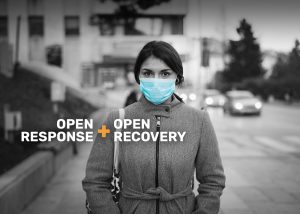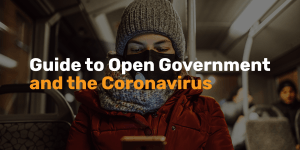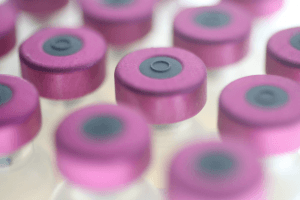8 Reasons Why Vaccine Procurement Should Be Open
This article was originally published in the Open Contracting Partnership’s website. Read the original blog here.
The COVID-19 vaccine rollout has, once again, put public contracts back in the spotlight. In the urgency to vaccinate the world’s population as quickly as possible, the Open Government Partnership community must advocate for open contracting approaches to be implemented as part of governments’ open response to the pandemic.
Here are eight reasons why vaccine procurement — from the purchase agreement with the manufacturer to the cold chain distribution of the doses to providing the needles and vials for the shot — should be open:
1. Open contractingA transparent procurement process, known as open contracting, increases competition, improves public service delivery, and ensures governments better value for their money. Technical specifications: C... More will strengthen public trust in vaccine programs
Long before COVID-19, public trust in the science behind vaccination was under threat from conspiracy theories and pseudoscience. In the absence of facts, opaque deals create an information and truth vacuum that is fertile ground for conspiracy and innuendo. The more we can share the facts and create one clear single truth around how the vaccine is procured, distributed and applied, the better chance we have at building the public trust we need for a successful global vaccination program.
2. Public funds should not be spent in secret
COVID-19 vaccine contracts have been heavily financed by public funds — over US $9 billion from governments and over US $2 billion from charities. And even those vaccines funded privately are only guaranteed a return on that investment through large government procurement deals. Public funds should not be spent in secret. There is clear, demonstrated public interest in the acquisition, distribution and availability of vaccines. It is in the public interest to know the name of the contractor and manufacturer, the total number of vaccines contracted, the contract value, and the delivery schedule.
Two years ago, a group of representatives from the private sector (including pharmaceuticals), government and civil society created a set of consensus principles around commercial secrecy and government contract publication. This included that redaction and publication decisions should be both made on the basis of public interest. The only reason to redact a contract is that it is in the public interest to do so, not in a company’s interest. Our FAQs on COVID-19, contracts & confidentiality answers many common questions about how to balance commercial and public interests.
3. Low and middle income countries need clarity on whether their contracts are fair
There is growing anger and frustration in the developing world over the lack of equity in vaccine procurement and distribution. It has been argued that contract secrecy allows pharmaceutical companies to offer tiered pricing, with lower rates to poorer countries. But so far, wealthy nations have been prioritized in the vaccine rollout, and as Charles Kenny points out, the evidence of pricing that benefits poor countries is weak. In the case of COVID-19, the information we do have indicates that low income countries are often paying higher prices. He reports: “The European Commission is paying $2.19 per dose for Astra Zeneca’s vaccine compared to $5.00 for the Philippines or $5.25 for South Africa. The African Union is paying $10 for the Janssen vaccine compared to Europe’s $8.50. That may be related to up-front financing for vaccine development by rich countries – but without contract publication, we can’t be sure.”
4. Open deals are better deals for citizens and government
Procurement that is transparent from the outset changes the playing field for government and citizens. Knowing that the deals, delivery, and application will be publicly communicated decreases the risk for decisions and provisions that disadvantage the public interest. These contracts contain information on “best effort” manufacturing, march-in rights (the ability of the government to intervene on citizens’ behalf if a company no longer offers the vaccine under reasonable terms and rates), liability, delivery schedules, licensing arrangements for further manufacture at scale and more.
In the case of many low and middle income countries, vaccine deals may be agreed with intermediaries, and it’s of critical importance to know who the counterparty is, and the terms these intermediaries might put forward. The ability for government and civil society to offer critique of deals to ensure they are iteratively improved on is part of the public accountabilityAccording to OGP’s Articles of Governance, public accountability occurs when ”rules, regulations, and mechanisms in place call upon government actors to justify their actions, act upon criticisms ... More we expect in any functioning democracy, and it ensures the deals are as strong as possible.
5. Open contracting enables efficient information sharing to optimize supply chains
Government procurement efforts have faced repeated supply chain challenges – most recently in the news around Europe’s delayed AstraZeneca vaccine delivery. Open procurement data on the contracts, delivery schedules, supply arrangements, and other aspects of the vaccination program allows different parts of government to talk to each other and spot problems before they spiral out of control. More open, shared data means smarter and quicker response times to fluctuations in supply. Experience from Ukraine shows how open contracting enabled real time monitoring of prices, supply, and risks.
6. Market oligopoly & non-disclosure of contract details makes institutions more vulnerable to corruption and unfair pricing risks
The World Health Organization (WHO) has reported that 80% of vaccine sales come from just five large multinational corporations, formed as a result of mergers and acquisitions in recent decades. It said: “Many of the individual vaccine markets are monopolies or oligopolies, either by product or presentation.” In this market environment, the balance between supply and demand needs to be closely monitored, leading the WHO to advocate for “constant management and communication between market actors” to guarantee sufficient supply of vaccines. Without an open procurement process, it’s extremely difficult for the government and public to know if the procurement in these tight market conditions is being managed in their best interests as effectively as possible.
7. Greater transparencyAccording to OGP’s Articles of Governance, transparency occurs when “government-held information (including on activities and decisions) is open, comprehensive, timely, freely available to the pub... More will avoid risks to the brand reputation of vaccine producers
The global corporate landscape is full of big brands committing to corporate social responsibility initiatives in an attempt to burnish their reputations as business leaders. While Moderna’s charity initiatives to plant pest-resistant plants or Pfizer’s initiative to donate trachoma treatment to low-income communities are highly laudable, their impact on pharma companies’ reputations will be dwarfed by the one thing the entire world’s population will remember them for: how they responded during the worst pandemic in living memory. Vaccine producers have a unique opportunity to emerge as heroes for their efforts to turn around vaccines in record time using unparalleled innovation for the greater good. Why tarnish this with secrecy that only serves to encourage vaccine skepticism and growing distrust of the motives of big business?
8. Business as usual isn’t good enough in unprecedented times
We’ve often heard that secrecy and redaction of key elements of vaccine contracts and the procurement process is “how it’s always been done.” Refusing to change and adapt is never a good justification for a certain course of action, and it is unreasonable when we are faced with unprecedented circumstances and challenges. Nothing anyone is doing to respond to the crisis is business-as-usual, nor should it be. And if we don’t change business as usual now, we will fail to deliver the best crisis response possible, and fail to grow and adapt for ever-stronger responses to future crises.
Open contracting works. We’ve been supporting governments and civil society partners around the world throughout the pandemic to work for better emergency procurement outcomes. It has been perfectly possible to buy fast and buy openly. Indeed, it has helped resilience and coordination, helping buyers and suppliers connect despite unprecedented disruption.
See the Open Contracting Partnership’s guidance, research and evidence on our COVID-19 page if you would like to know more. And, in the near future, we are putting together a vaccine buyer disclosure guide. Email us to be added to our mailing list for further updates.
Comments (1)
Leave a Reply
Related Content

Open Response + Open Recovery
Our community’s fundamental values of accountability, transparency, inclusivity, and responsiveness are vital as we move through COVID-19 response to recovery. Find resources, events and examples from OGP and partners.

A Guide to Open Government and the Coronavirus
This guide is a one-stop shop for the best current resources on how open government projects and approaches can support tackling the pandemic.

A Guide to Open Government and the Coronavirus: Public Procurement
Procurement has become a life or death issue in many countries’ responses to the coronavirus pandemic. In the short-term, emergency procurement is a critical component of any government’s response measures.


Manuel Zeledon-Ramirez Reply
Hi.
Pretty interesting view.
But you mention… “vaccine contracts and the procurement process is “how it’s always been done.”…
Is there a reason for it being done this way? But not just…the old adage…more like: are there texts or references that defend this style of doing things?
I have always wondered why the COVID vaccines were sold to the Governments exclusively? Why not to a private company?
Many other vaccines are sold to private pharmacies or distributors. So why would anybody think these vaccines were different?